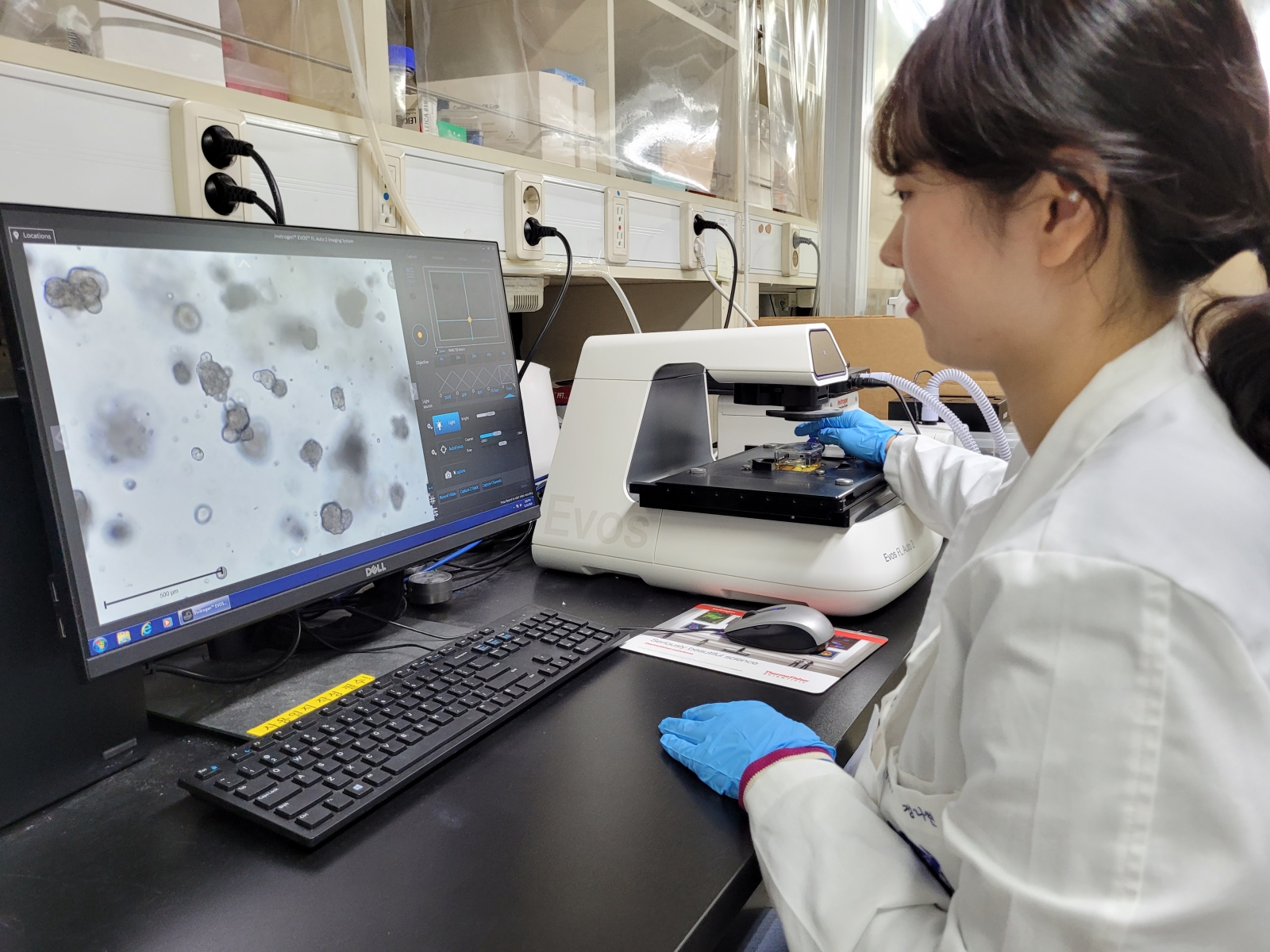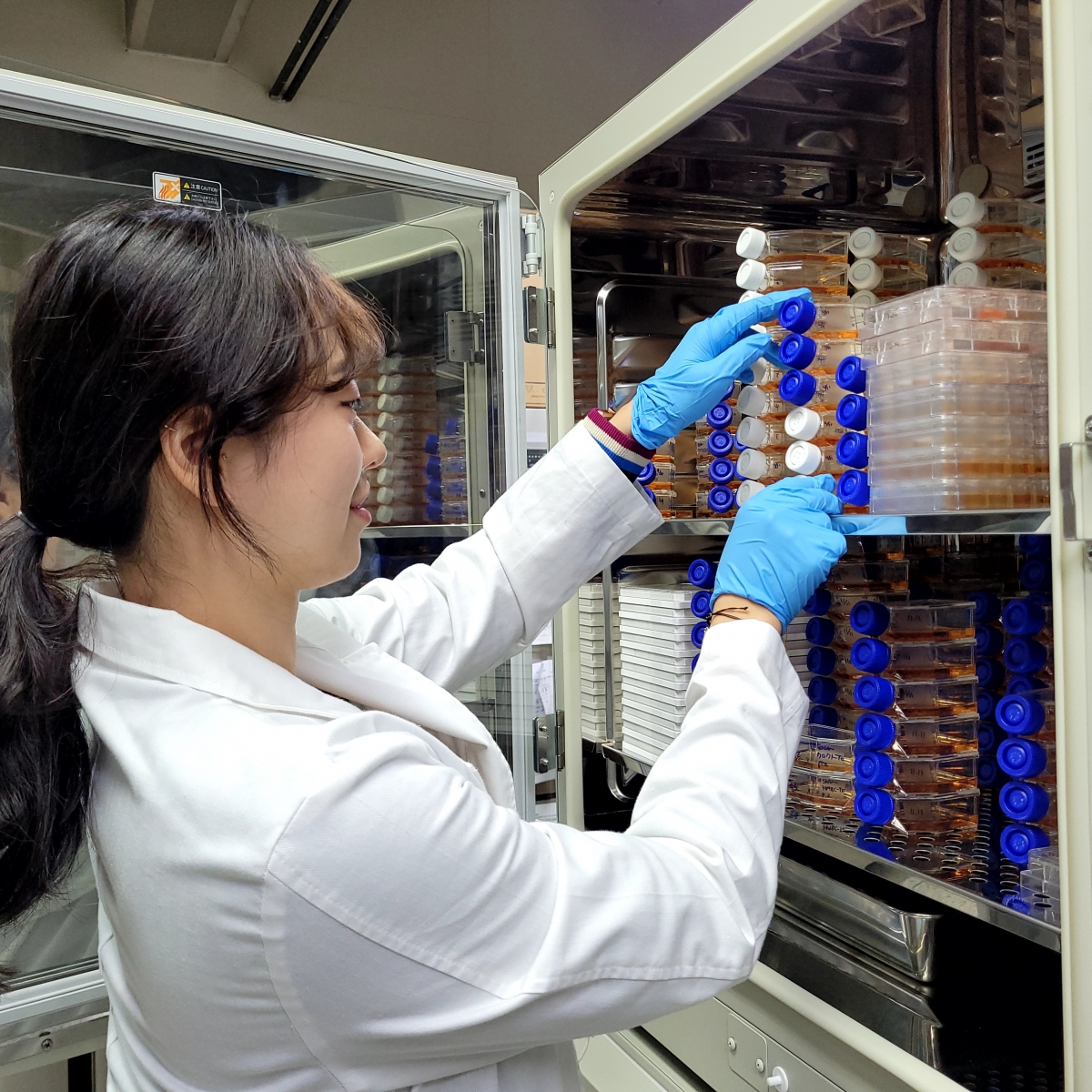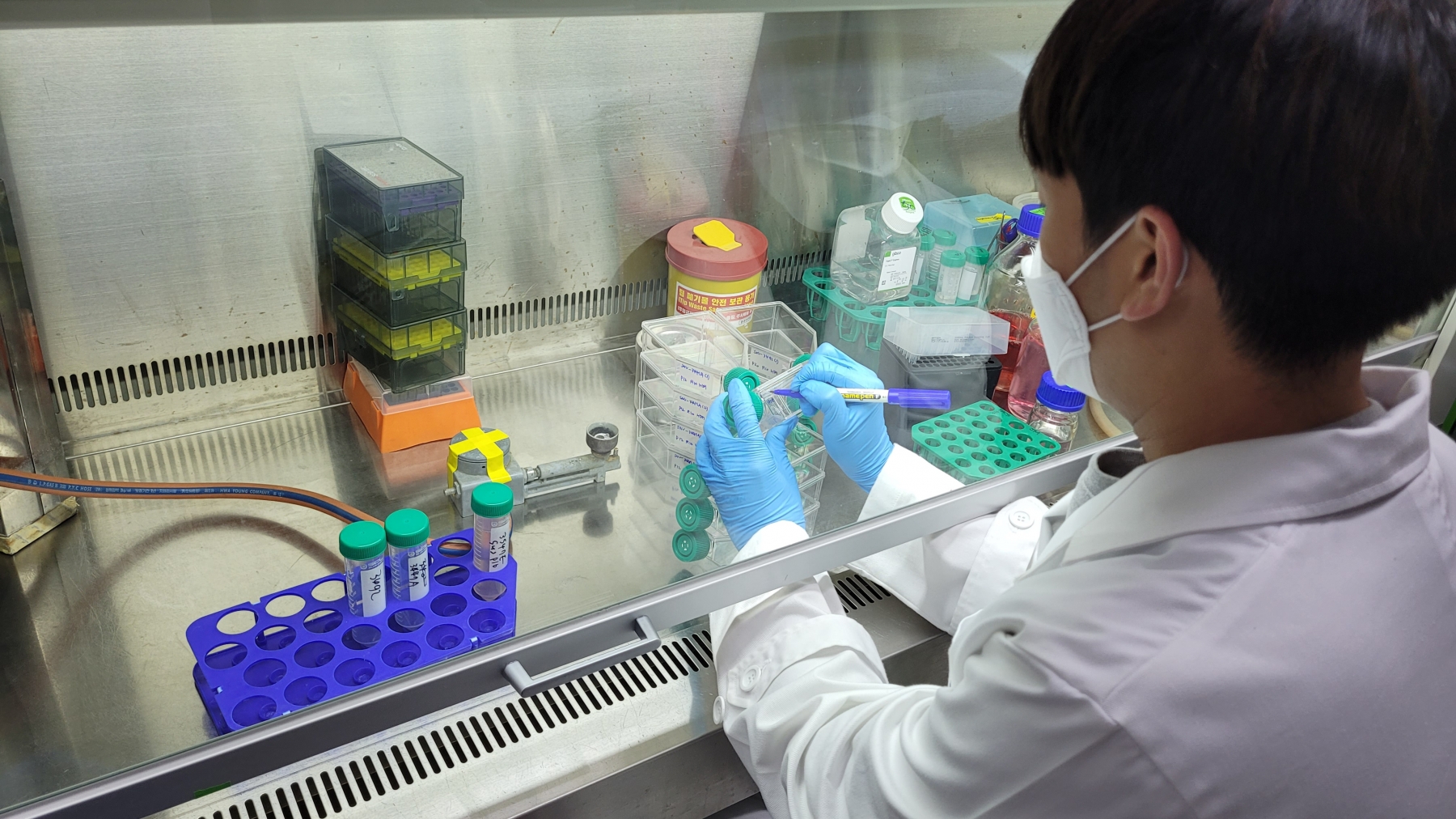
Overview
Laboratory Introduction
Laboratory of Cell Biology
Laboratory of Cell Biology
Cancer research using cell lines has the advantages of not only being able to obtain target cells indefinitely, but also performing reproducible experiments, investigating intracellular metabolism, and manipulating various homeostatic factors. Cell lines are currently used as the essential model in a variety of researches including cell differentiation, gene expression, drug sensitivity, immunity, cell invasions and metastasis, antigen expression and secretion, development of single-cell antibody, factors for growth and inhibition and genomic profiling. Therefore, it is crucial to establish a variety of cell lines that are well-characterized. Seoul National University Cancer Institute's Cell Biology Laboratory and the Korean Cell Line Bank (KCLB) have established and distributed patient-derived cell lines since 1982 so that researchers in field of life sciences can use them for research conveniently. Over 2,000 cell/organoid lines originated from multiple organs were established and preserved as a result of cultivating more than 8,600 individual tissues by KCLB. Furthermore, KCLB is still continuing to develop various types of cell line stocks to contribute to related research field. The Korean Cell Line Research Foundation (approved by the Ministry of Science and Technology on December 18, 1991) was designated as the World Intellectual Property Organization (WIPO) under the United Nations and is recognized as an international depository authority (IDA) in accordance with Budapest Treaty on the international recognition of the deposit of microorganisms for the purpose of patent procedure (Currently, only 48 depositories in 26 countries were approved for IDA). Experimental models for cancer research include cancer cell lines, patient-derived PDXTs, and cancer tissue-derived organoids. Organoids are organized by self-renewal and differentiation from embryonic stem cells, iPSC and adult stem cells under specific growing environment. Many biomedical scientists over the world have mentioned about 3D ex-vivo model as a type of mini-organ that was demonstrated to represent physiologically similar in vivo system while being incubated in a three-dimensional tumor microenvironment. Organoid-based research platforms exhibit a variety of potential applications including drug screening, bio-banking, infectious diseases and, by extension, regenerative therapy via genomic correction, personalized and precise treatment in conjunction with patient's genomic profiles. Since 2016, Our laboratory has been developing and establishing organoid lines derived from various tissues. At the same time, we have characterized the established organoids using Next Generation Sequencing (NGS) and pharmacological analysis. In 2017, Ministry of Science and ICT designated KCLB as the Life Research Resource Conservation Agency. In addition, since 2020, KCLB has also been designated as the institution for National Strategic Life Research Resource (cell line) that provides central infrastructure of national research related to the cell lines.
Related Researcher

Min Jung Kim Professor
- Email : scarlet1@snu.ac.kr
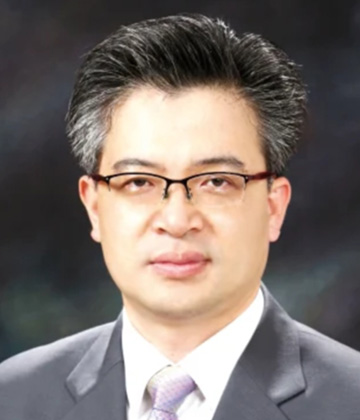
Ja-Lok Ku Professor
- Email : kujalok@snu.ac.kr
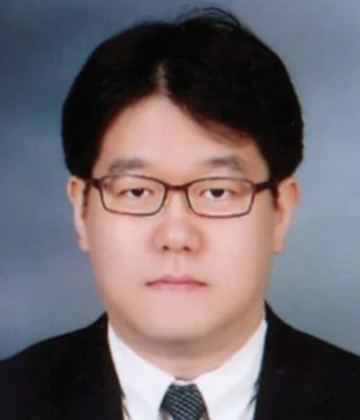
Ji Won Park Professor
- Email : sowisdom@snu.ac.kr

Seung-Yong Jeong Professor
- Email : syjeong@snu.ac.kr
Research topics
Research goals
Research achievements
An JM, Kang S, Huh E, Kim Y, Lee D, Jo H, Joung JF, Kim VJ, Lee JY, Dho YS, Jung Y, Hur JK, Park C, Jung J, Huh Y, Ku JL, Kim S, Chowdhury T, Park S, Kang JS, Oh MS, Park CK, Kim D.Penta-fluorophenol: a Smiles rearrangement-inspired cysteine-selective fluorescent probe for imaging of human glioblastoma. Chem Sci. 2020 May 11;11(22):5658-5668.
Cho WC, Shin YK, Na YS, Ryu MH, Ku JL, Kang YK.The role of novel fusion genes in human GIST cell lines derived from imatinib-resistant GIST patients: A therapeutic potential of fusion gene. Biochem Biophys Res Commun. 2020 Aug 27;529(3):699-706.
Lee YE, Ju A, Choi HW, Kim JC, Kim EE, Kim TS, Kang HJ, Kim SY, Jang JY, Ku JL, Kim SC, Jun E, Jang M. Rationally designed redirection of natural killer cells anchoring a cytotoxic ligand for pancreatic cancer treatment. J Control Release. 2020 Jul 16:S0168-3659(20)30398-9.
Seo J, Lee CR, Paeng JC, Kwon HW, Lee D, Kim SC, Han J, Ku JL, Chae JH, Lim BC, Choi M. Biallelic mutations in ABCB1 display recurrent reversible encephalopathy. Ann Clin Transl Neurol. 2020 Aug; 7(8): 1443–1449.
Ha DH, Min A, Kim S, Jang H, Kim SH, Kim HJ, Ryu HS, Ku JL, Lee KH, Im SA. Antitumor effect of a WEE1 inhibitor and potentiation of olaparib sensitivity by DNA damage response modulation in triple-negative breast cancer. Sci Rep. 2020 Jun 18;10(1):9930.
Kim SC, Kim HS, Kim JH, Jeong N, Shin YK, Kim MJ, Park JW, Jeong SY, Ku JL. Establishment and characterization of 18 human colorectal cancer cell lines. Sci Rep. 2020 Apr 22;10(1):6801.
Cho WC, Jang JE, Kim KH, Yoo BC, Ku JL. SORBS1 serves a metastatic role via suppression of AHNAK in colorectal cancer cell lines. Int J Oncol. 2020 Mar 5. 56:1140-1151
Kim SC, Shin YK, Kim SW, Seo HY, Kwon W, Kim H, Han Y, Lee JO, Jang JY, Ku JL. Establishment and Characterization of 10 Human Pancreatic Cancer Cell Lines Including a HER2 Overexpressed Cell Line. Pancreas. 2019 Nov/Dec;48(10):1285-1293.
Kim S, Cho YH, Won S, Ku JL, Moon HB, Park J, Choi G, Kim S, Choi K. Maternal exposures to persistent organic pollutants are associated with DNA methylation of thyroid hormone-related genes in placenta differently by infant sex. Environ Int. 2019 Sep;130:104956.
Kim SC, Shin R, Seo HY, Kim M, Park JW, Jeong SY, Ku JL. Identification of a Novel Fusion Gene, FAM174A-WWC1, in Early-Onset Colorectal Cancer: Establishment and Characterization of Four Human Cancer Cell Lines from Early-Onset Colorectal Cancers. Trans Oncol, 2019, 12, 1185-1195.
Lee Y, Kim TM, Kim DW, Kim S, Kim M, Keam B, Ku JL, Heo DS. Pre-clinical Modeling of Osimertinib for Non-small Cell Lung Cancer with EGFR Exon 20 Insertion Mutations. J Thorac Oncol, 14(9), 1556-1566.
Seol MA, Kim JH, Oh K, Kim G, Seo MW, Shin YK, Sim JH, Shin HM, Seo BY, Lee DS, Ku JL, Han I, Kang I, Park SI, Kim HR. Interleukin-7 Contributes to the Invasiveness of Prostate Cancer Cells by Promoting Epithelial-Mesenchymal Transition. Sci Rep. 2019 May 6;9(1):6917.


